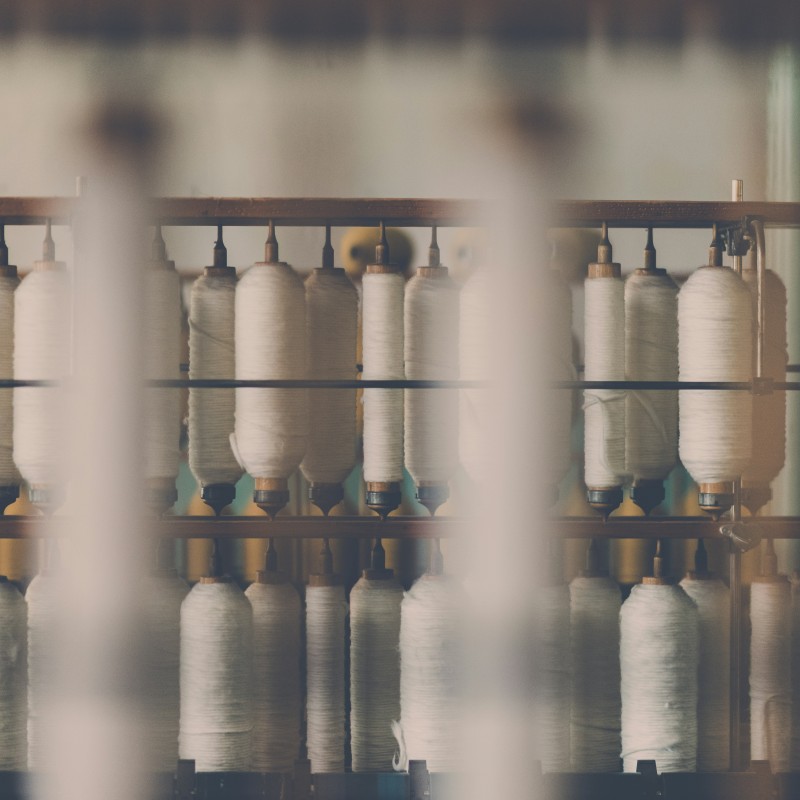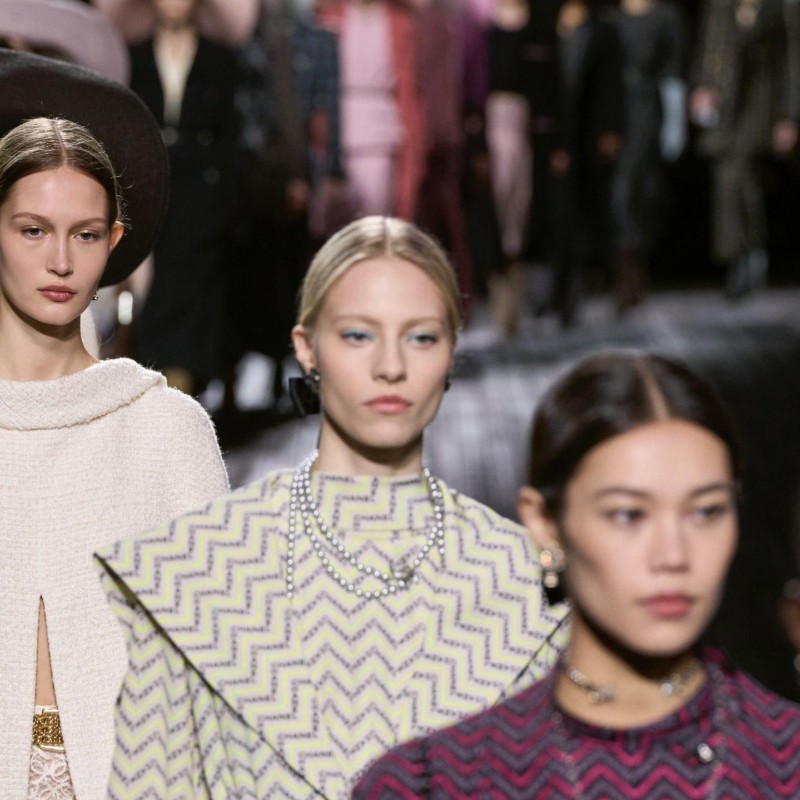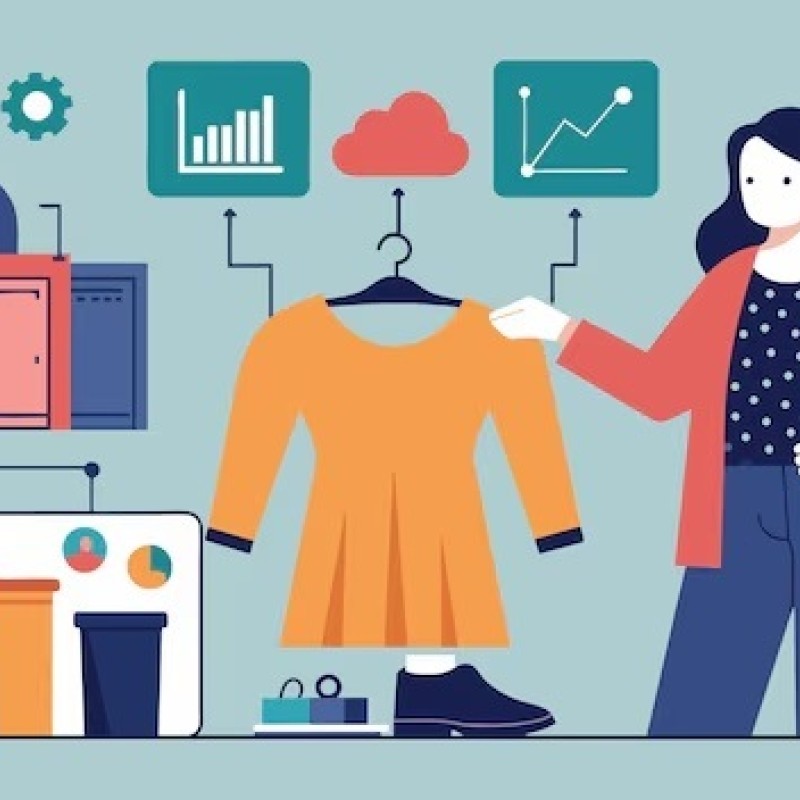This year will see the fashion industry’s most significant transformation since the bricks-and-mortar to e-commerce shift in 1998. The fast emerging ‘conscious consumer’ has resulted in every fashion business reviewing, reflecting and reconnecting with their values and missions to ensure ‘looking after the world’ is at the forefront of everything.
Marketing strategies within a company bridge the gap between the brand and sales. And, in an economic climate where every sale counts, the marketing function now holds more power than ever before. The fashion industry in particular will be looking to marketing experts to lead the way with innovations and ideas to engage and interact with customers, ultimately converting actions into transactions. However, as the proverbial saying goes, “every cloud has a silver lining”. The mindful-consumer movement, ignited by the dark Covid-19 cloud, has lead the world to put our planet first. Climate issues finally have the spotlight on them that they deserve.
To support your marketing operations our experts have analysed the top fashion marketing trends for 2021 and listed below the concepts that can’t be ignored any longer.
Collaborations and partnerships will have a strong presence this year. The catalyst behind the trend comes from brands having smaller budgets to play with. Businesses will seek ways to make strategy changes without heavy investments and building relationships and affiliations with other companies will enable them to do so.
There is however a ‘but’. Non-genuine partnerships, such as working with the wrong kind of associate, will not bring desired results. Consumers have moved on from being motivated to purchase products endorsed by paid-partnerships and gifting-collaborations. Authentic partnerships that tie into sustainability and corporate social responsibility is where brands will be able to reap the benefits.
ThredUp, the online reseller of second-hand clothes, is a prime example of how genuine collaborations can really work. Retailers across the world have benefited from striking up partnerships with the resale business, including the likes of Macy’s and Reformation. The circular fashion movement is an area the industry is striving to support and having the ability to offer ThredUp’s clean out kits to their customers has allowed brands to do this – efficiently and quickly.
The buzzword of 2020 was transparency. Up and coming socially responsible fashion companies reaped rewards (and press coverage) last year for being open about business costs, where materials originate from and the living environments of employees. Everlane, one of the first luxury fashion brands known for its corporate social responsibility programme (CSR), launched a decade ago with the motto “Radical Transparency”. Yet, 2020 was when the brand’s mission really started to come to life as more consumers became environmentally-conscious about what they were wearing.
Transparent communications will be fundamental in fashion this year. Customers will no longer turn a blind-eye to the journey of their garments from raw-materials to sale. They will want to be certain that their purchase is a conscious one – and not another fast-fashion item.
Fashion businesses will also be focused on reviewing processes and protocols and look at new innovations and initiatives to better their brand’s footprint. The businesses that stand out in this area will be the ones openly telling customers and the world about their findings. H&M Group and Veja are two companies that have worked hard on marketing and PR practises to ensure consumers know them as environmentally-conscious brands:
Products using these methods might not be ‘cheap’ but customers will be happy to increase their budget knowing they’re spending consciously, and ultimately feel good about what their wearing.
Virtual events and live-streamed-gatherings gained momentum at the back end of 2020. People became accustom to new ways of socialising and consumers adopted new tech innovations and platforms quickly – faster than ever before.
There were many virtual event success stories in the fashion industry last year, one being Burberry’s collaboration with Twitch. As the traditional fashion show schedule came to a halt, the luxury brand’s executives reinvented the wheel and looked to Twitch, an online-streaming service, to enable its collections to not go amiss. Fashionistas weren’t able to go to Burberry’s show, but Burberry was determined to bring the show to them.
Marketing experts will be looking to Twitch, and other online-streaming services, to help them achieve big things this year. London Fashion Week has already announced it will be going virtual with added extras such as photograph and filming opportunities. Collections will also be uploaded online with the ability to purchase sought-after items.
Virtual events that can promise an afternoon or an evening of entertainment are going to be a hit with consumers this year and have been dubbed one of the top fashion social media trends for 2021. The brands that manage to get it right will be at the forefront of the digital-world and consumers will flock to them looking for a form of entertainment while they stay at home.
One of the biggest learnings from 2020 was the importance of omnichannel. Most companies that survived the Covid-19 storm had already accomplished an integration of their online experience with in-store services. Omnichannel strategies will however move on ten-fold in 2021. And, the most advance strategies will use artificial intelligence (AI) to bring the instore and online experience together.
AI in the fashion industry is not completely novel, in fact Burberry three years ago installed AR mirrors into two of its stores to allow customers to pose with its iconic tartan ribbon. Many brands, like GOAT, have also been using AI technology to enable online shoppers to virtually try on clothes and footwear. It’s because this kind of technology is now becoming more common-place that consumers – especially online shoppers – will choose the brands that offer this service, over those that don’t. When stores are allowed to eventually open AI technology installed in changing rooms is also a trend that’s going to get bigger, and eventually be expected from customers.
AI technology isn’t only being used as a virtual try-on tool, businesses far and wide are using it to support customer service processes. ChatBots is an area fashion companies are investing heavily in this year. In fact it’s been predicted that 80% of businesses worldwide will use ChatBots by the time the year has come to a close. The interactive software behaves like a human over email, live chats and SMS and is being implemented to handle customer service queries in real-time. Brands such as Levi’s and Tommy Hilfiger are already using ChatBots. Tommy Hilfiger uses the AI to interact with customers throughout their entire browsing journey. While shoppers peruse collections they can ask the bot to suggest outfits or items for their figure, and this can all be done within Facebook Messenger!
While robot technology has been talked about for many years, 2021 is when brands will really start to get interested and invest. And those that don’t, will be left behind.
Looking for a fashion recruitment agency to help you find you a Marketing Director job role? Get in touch to discover a career beyond your expectations.





Beyond Talent
Fashion Recruitment Agency
Specialising in Senior and Executive recruitment for the luxury fashion, lifestyle and beauty industries worldwide.
Head Office Address
20-22 Wenlock Road, London, N1 7GU
Contact Us